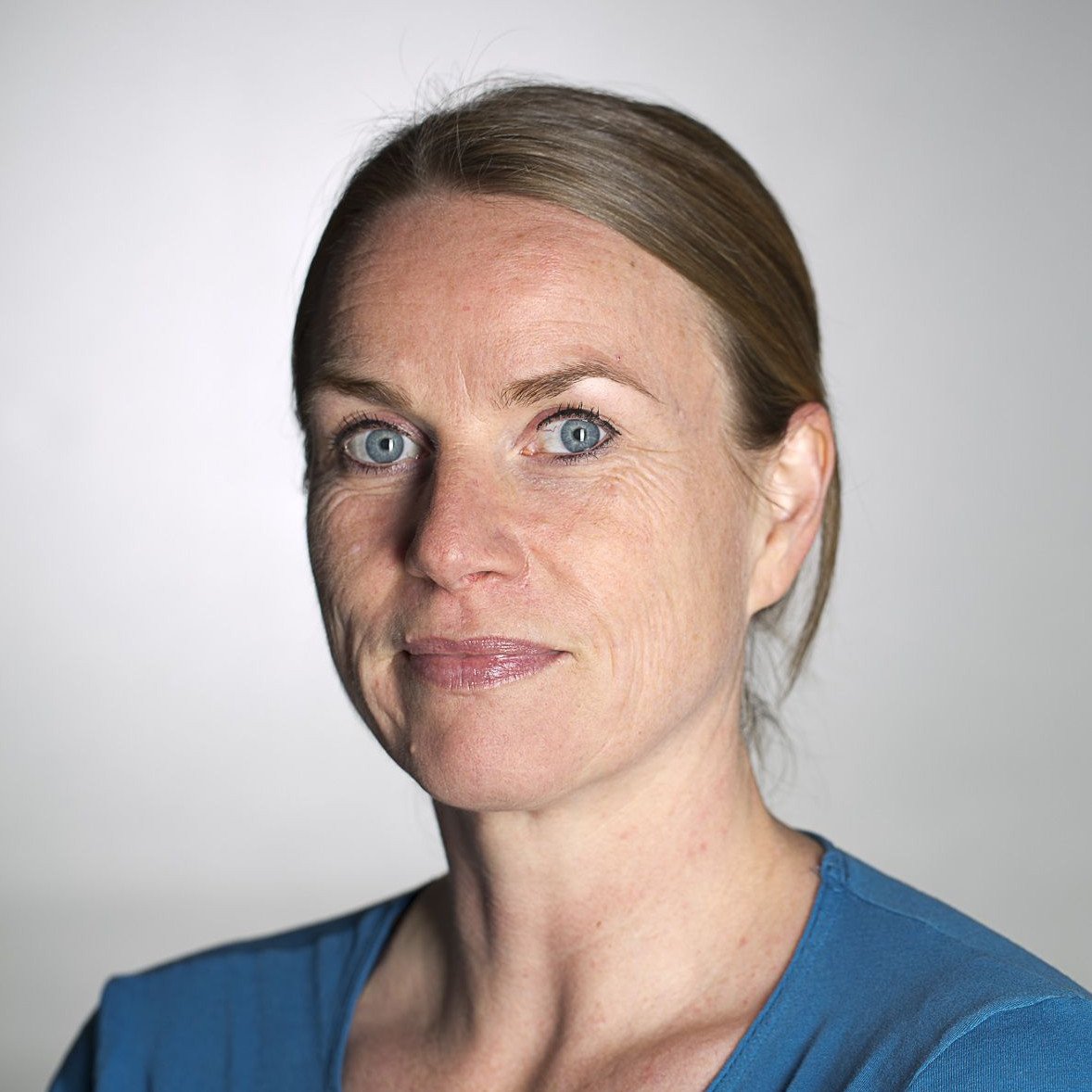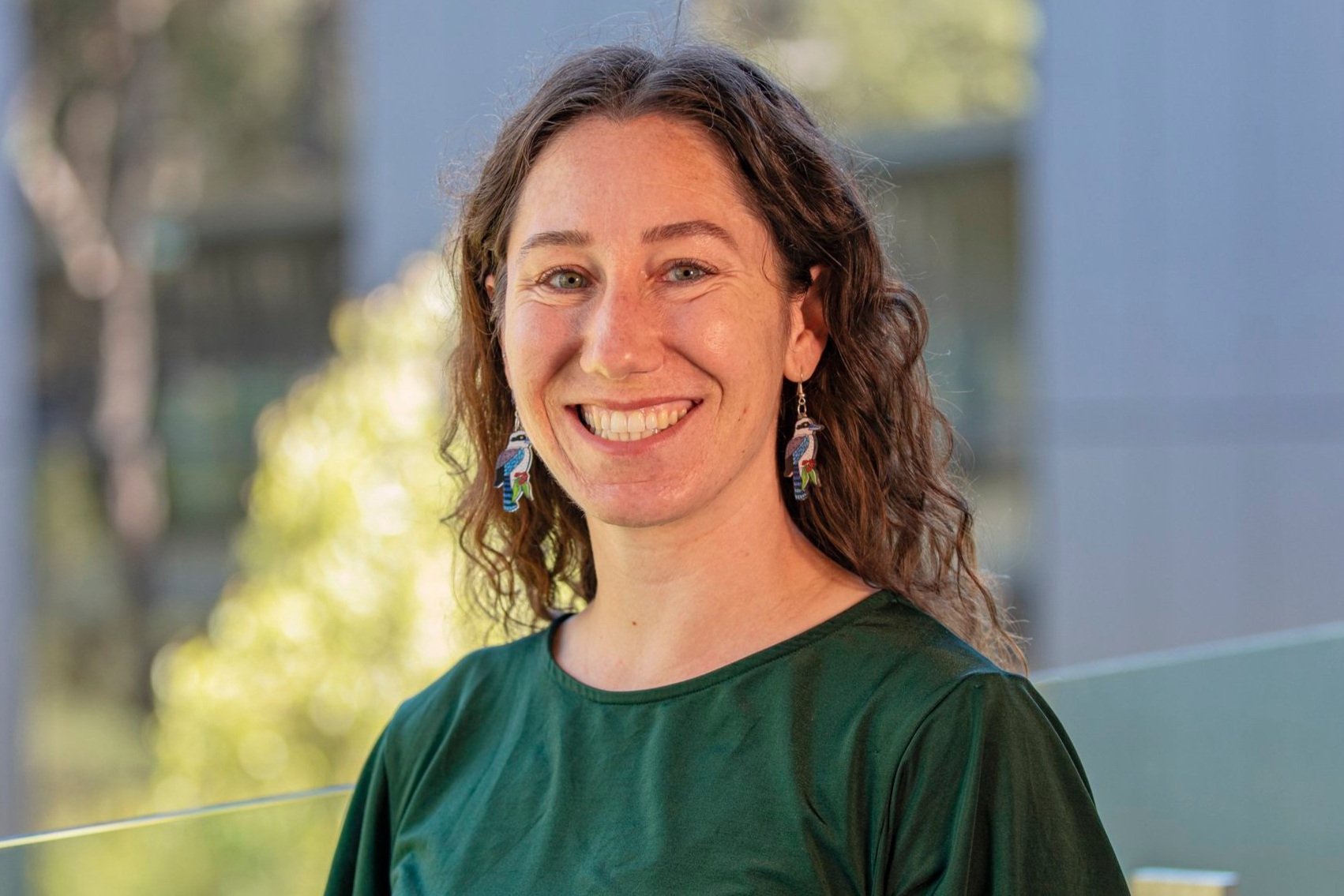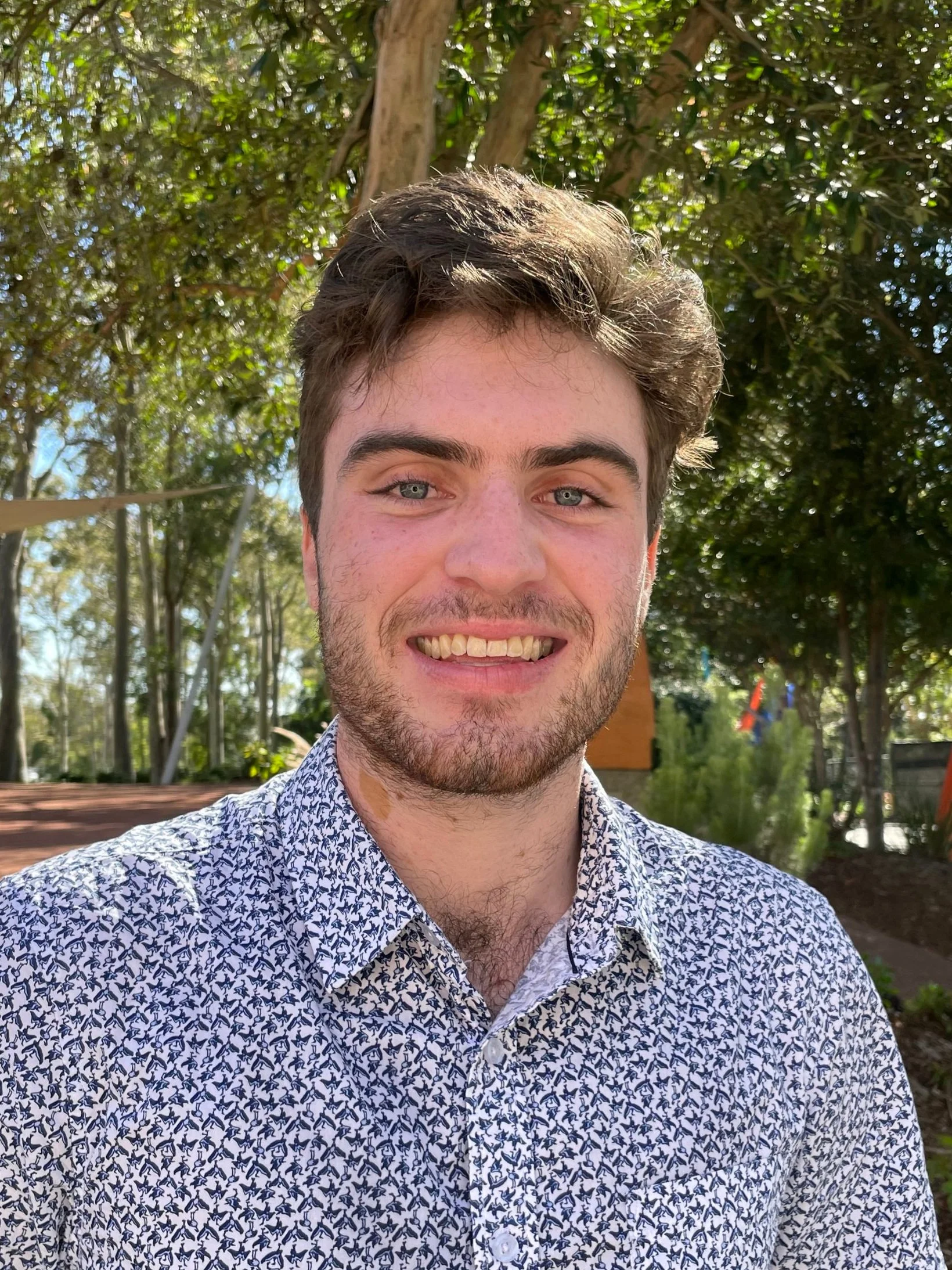Our team
GROUP LEADER - GLOBAL PROFESSOR OF SYSTEMS NEUROSCIENCE
Professor Michael Breakspear
I am the group leader of the Systems Neuroscience Group with interests in computational neuroscience and translational neuroimaging. My contributions to the former focus on dynamic models of large-scale brain activity, toolbox development and the detection of nonlinear dynamics in empirical data. My work in translational imaging encompasses healthy ageing, dementia, bipolar disorder and schizophrenia, with a focus on connectomics and risk prediction.
I grew up in Sydney and studied medicine, philosophy and mathematics. I undertook early career research training in the School of Physics at the University of Sydney before moving to the School of Psychiatry at UNSW as a mid-career researcher. I formed the Systems Neuroscience Group at UNSW in Sydney in 2004, then moved to QIMR Berghofer Medical Research Institute from 2009. I relocated to Newcastle in 2019 and established the Systems Neuroscience Group, Newcastle with aspirations to integrate basic methods, bioinformatics and clinical translation with a unique regional Australian character. Our imaging centre is in a beautiful bushland setting on Awabakal country.
In addition to basic research training, I also completed training in psychiatry and nowadays combine my research career with clinical sessions in adult psychiatry. I have an interest in recovery-focussed treatment of mood disorders, psychosis, and addiction. In the past, I have worked in Prison Mental Health and Inner City community psychiatry.
I have a passion for climate science, being rather social, and surfing.
RESEARCH ASSOCIATE & RESEARCH MANAGER
Renate Thienel, PhD
Biography: I am a Mid-Career Researcher with a passion for improving health outcomes; I hold a PhD (Science), Master in Professional Psychology, Postgraduate Diploma in Psychology, and a BSc (Hons). My research activities span across clinical, cognitive and neuroscientific aspects of health and mental health.
My research focuses on work with clinical and non-clinical participants and spans across methodologies such as self-report surveys, clinical and cognitive assessments, magnetic resonance imaging, pharmacological agents, transcranial direct current stimulation, electroencephalography etc. I have published 56 HERDC research publications including 30 (C1) journal articles, 5 book chapters (1 B1, 1 D1), and 25 conference papers, 1 white paper and several governmental reports reflecting my academic efforts and contributions, with a h-index of 17, and 1111 citations. I have over 10 years of experience working as a mentor and supervisor for domestic and international students including HDR students.
My career grant income is $520,853 (excluding $1,500,000 from AI positions) across category 1, category 3 and internal grants including a prestigious 4 year UoN post-doctoral fellowship. Since 2019, I am the Research Manager of Michael Breakspear’s Systems Neuroscience Group at HMRI’s Imaging Centre where I am coordinating and am involved in the groups various research studies which includes the Newcastle site for the Australian Dementia Network (ADNeT).
DATA SCIENTIST & TECHNICAL SUPPORT
Bryan Paton, PhD
Biography: I have a diverse background in computer engineering, philosophy and cognitive neuroscience. I am a nerd at heart and having this broad experience lets me combine all of my interests.
Consciousness & Attention: I am deeply interested in the brain and how perceptual experiences transition from non-conscious to conscious and what are the factors, cognitive, behavioural and neurophysiological involved. I have some experience with binocular rivalry, continuous flash suppression and related paradigms.
Learning under conditions of uncertainty or volatility: I am also interested in learning, in general, especially models of the process where there are sources of noise and/or uncertainty and when these themselves change over time e.g. volatility. I have also been trying to develop novel paradigms to study these processes in a dyadic, social setting.
Computational models: I have in interest in how the brain works, and the methods used to study it, having a long background in EEG, MRI and many other related technologies. By combining these methods of data collection and using computational models of the behavioural and neurophysiological mechanisms involved I hope to gain more insight in these phenomena in both the healthy brain and its pathophysiology including Schizophrenia, Autism Spectrum Disorder and Dementia.
POSTDOCTORAL RESEARCH FELLOW
Richa, PhD
Biography: I'm Richa and I am working as a postdoctoral candidate with Professor Michael Breakspear’s group. My encounter with research began in earnest during my Master’s thesis at IIT-Bombay, which involved exploring stochastic resonance in chemical oscillators and I've been fascinated by the broad field of complex dynamical systems since.
The central theme of my PhD thesis has been to explore and characterize the effect of external sensory stimulation on human brainwaves recorded using EEG. I believe in deconstructing a problem to its simplest form and then piece by piece, layering complexities to see the bigger picture emerge. In order to implement this research philosophy, I lean on dynamical systems theory for modeling to complement the EEG recordings and employ tools from statistical physics.
Research Interests: Outside the realm of brainwaves, I have worked with both dynamic and static small-world networks to explore the manifestations of "echo" behavior in complex networks. I have also been exploring other non-linear dynamical phenomena such as stochastic resonance, fractals, and oscillation quenching using both experimental systems as well as numerical models.
Beyond the lab and the world of research, teaching and science communication are very close to my heart and I am always up for a conversation about the brain, non-linear dynamics, teaching or books.
Broad areas of Interest: Neural Mass models, EEG, Neural Field Theory, Networks and complex systems.
POSTDOCTORAL RESEARCH FELLOW
Anna Behler, PhD
Research Interests: With a physics background, I am particularly fascinated by the potential of using advanced statistical techniques and machine learning methods to analyze and interpret neuroimaging data. I plan to leverage computational modeling to gain a deeper understanding of the complex workings of the brain. Aside from my interest in computational neuroimaging, I am fascinated by the potential of eye-tracking as a tool to gain insights into the brain. Having previously utilized videooculography in clinical settings to study Parkinsonism and amyotrophic lateral sclerosis, I am now eager to delve deeper into the relationship between eye movements and cognition.
Biography: I completed my M.Sc. in physics at TU Dresden, Germany, followed by a research assistant position. Back then, my research focused on magnetic effects in thin films. Following a career break, I shifted towards education, where I undertook a teaching role and contributed to the development of master-level courses in machine learning. Motivated by my passion for research and the enjoyment I derive from it, I made another career transition and did my PhD at the Medical Centre of Ulm University, Germany, where I used my computational background to improve the reliability of diffusion tensor imaging studies in amyotrophic lateral sclerosis. I recently took up my first postdoctoral position in the Systems Neuroscience Group, Newcastle.
RESEARCH ASSOCIATE
Dr Saurabh Sonkusare
Biography: I have primarily been trained and worked as a medical doctor (MBBS) with a subsequent MSc from the University of York, UK, and a PhD in Neurosciences from QIMR Berghofer/The University of Queensland, Brisbane, Australia. I completed my postdoc in the Dept. of Psychiatry, the University of Cambridge (2021-2024) with Prof Valerie Voon. I utilize neuroimaging (LFPs, fMRI) and neuromodulation tools (TMS) to understand the functioning of key brain regions, their interactions, and meso/macroscale brain dynamics. I also specialize in psychophysiological measures (heart rate and skin conductance) and especially facial thermal imaging having developed methods for its analyses. Using traditional task paradigms and championing naturalistic ones such as movies, these streams of research form the basis for my investigations on neurobiological underpinnings of emotions, interoception, decision-making and their breakdown in affective disorders, anxiety disorders, obsessive-compulsive disorders and addictions.
RESEARCH ASSOCIATE
Joseph Giorgio, PhD
Research Interests:
Biography:
POSTDOCTORAL RESEARCH FELLOW
Katharina V. Wellstein, PhD
Biography: I am a visiting postdoctoral fellow from Zurich, Switzerland. In my postdoc I am investigating the mechanisms that may lead to and maintain constricted affect, a core symptom of many mental disorders. To that end I am using computational models of behaviour and belief formation and associate them with multi-dimensional data (fMRI, EMG, physiology, behavior).
I completed an MSc of Science in Psychology (minor: history, mainly focused on African history and history of Islam) at University of Zurich and worked as a Research Assistant in an interdisciplinary lab (Translational Neuromodeling Unit) associated with both ETH and University of Zurich, where I gained a lot of experience conducting and planning complex studies involving both EEG and fMRI (3T and 7T). During my MSc I planned and conducted a behavioural study on subclinical paranoia. During my PhD I shifted my focus on interoception (the connection and interplay between brain and body) and conducted a clinical trial using auricular Vagus Nerve Stimulation.
Thanks to my research experience so far, I gained a broad experimental skillset and in-depth knowledge of applying a particular hierarchical Bayesian model of perception (Hierarchical Gaussian Filter). I’m very much driven by curiosity about how humans come to perceive their life differently from eachother and how that impacts their behavior, social interactions, life, and health. Furthermore, I am interested in how the brain uses and integrates information from the outside world (exteroception) and from the body (interoception).
In addition to my core interests, I am very passionate about open and robust slow science, and science (especially in psychology and mental health research) moving away from solely adopting Eurocentric study samples, models, and research questions.
INDIGENOUS RESEARCH FELLOW
Dr Guy Cameron
Biography: I am a proud Wailwan (Aboriginal) man with a Doctorate of Philosophy (Immunology & Microbiology). My post-doctoral research is focused on Aboriginal ear & immune health, to expand our knowledge on ear disease which disproportionally affect Aboriginal and Torres strait Islander children.
I am one of two research fellows that are co-funded by the National Imaging Facility and Systems Neuroscience Group to foster Indigenous collaboration and ownership in the field of imaging research to improve health and wellbeing participation and outcomes for Indigenous Australians.
Additionally, I am an Indigenous tutor and mentor with the Wollotuka Institute, striving to assist mob with getting equal opportunity.
INDIGENOUS RESEARCH FELLOW
Jennifer Rumbel
Biography: I am a Kamilaroi woman with a passion for empowering Aboriginal people and communities. I have undergraduate degrees in Theology and Aboriginal studies with Newcastle University. Currently Jenn is a PhD Candidate in Aboriginal studies with the Wollotuka Institute at Newcastle University looking at the impact of the Catholic Church in the Maitland – Newcastle Diocese, on Aboriginal spirituality, health and wellbeing.
My previous research roles include the Memory Study with the Health Behaviour Research Collaborative at HMRI and Driving Change with the George Institute for Global Health.
I am the Chair of Firstchance Early Childhood Early Intervention Service in Newcastle, a member of the Aboriginal Catholic Ministry in the Maitland Newcastle Diocese and a member of the Lowitja Institute Members Community. Recently I graduated as a Spiritual Director.
I am one of two research fellows that are co-funded by the National Imaging Facility and Systems Neuroscience Group to foster Indigenous collaboration and ownership in the field of imaging research to improve health and wellbeing participation and outcomes for Indigenous Australians.
POSTDOCTORAL RESEARCH FELLOW - CLINICAL PSYCHOLOGY REGISTRAR
Caroline Faucher, MProfPsych
Biography: I completed my Master of Professional Psychology at the University of Newcastle in 2021 while working as a research assistant in the lab. I began my PhD in 2022, which focused on sleep, cognition and brain health in older adults. Alongside my research, I am also a clinical psychology registrar, working with clients across all age groups, with a particular interest in sleep problems, OCD, anxiety and the perinatal period.
Before transitioning into psychological sciences, I earned a BA from Université Laval in Quebec and spent several years working as a journalist and in communications.
Research Interests
My research examines the interplay of sleep, cognition, and brain health, integrating clinical and neuroscience approaches. I am also passionate about animal-assisted therapy. At the lab, I am leading a study investigating whether dog-assisted interventions can reduce scan anxiety. For this project, I have the pleasure of working alongside my Golden Retriever, Maple, who regularly accompanies me at the lab as a therapy dog (see Maple’s bio below!).
RESEARCH COORDINATOR
Sarah Sanders, MS
Biography: I completed a Bachelor of Science in animal sciences at the University of California Davis and a Master of Science degree in animal sciences and nutrition at Iowa State University, where I was the lead investigator for 3 studies using beef cattle. My research in this field was focused on decreasing greenhouse gas emissions from livestock and improving growth efficiency through nutrition. Following this degree I shifted my focus towards oncology research and moved to Colorado to study pancreatic and colorectal cancer at the University of Colorado Anschutz Medical Campus. My research into pre-clinical immunotherapies assisted in the opening of a Phase 1 clinical trial at this campus. Following my migration to Australia in 2021, I pivoted to research coordinating and joined the Systems Neuroscience Group. As the Research Coordinator for the Newcastle ADNeT site, I enjoy working with our participants and helping to connect them with local clinical trials. I am excited to collaborate with our postdoc Caroline in starting the Dog Assisted Intervention pilot study, which has been a great opportunity to combine two of my interests, animal sciences and dementia research.
I also work for the University of Newcastle Family Action Centre and enjoy supporting the children with disabilities and their families who attend these retreats. In my free time I am an enthusiastic member of the Newcastle ultimate frisbee community, and otherwise love spending time with my family, creating art and music, and traveling.
PhD CANDIDATE
Nicholas Burton
Biography: I’m a PhD candidate at the University of Newcastle where I completed my undergraduate degree in Psychological Sciences with Honours. My Honours project focused on comparing manual and machine learning-based behavioural analysis to uncover how mice differentially respond to predictable and unpredictable stressors. I have complimented my research experience with teaching anatomy to undergraduate students. Beyond academia, I maintain an active lifestyle through sports such as golf and baseball.
Research interests: My research bridges computational psychiatry and behavioural neuroscience to better understand learning and decision-making processes in the brain. Working under the supervision of Christopher Dayas, Elizabeth Manning, Katharina Wellstein Samms, and Michael Breakspear, I optimise computational models that capture how animals learn and adapt their behaviour in changing environments.
My work specifically focuses on how animals process uncertainty and update their beliefs about their environment. Using operant behavioural tasks combined with mathematical models, I investigate how chronic stress and neurotransmitter systems, particularly serotonin, influence these learning processes. This research has important implications for understanding psychiatric conditions like depression and OCD, where learning and belief-updating processes are often disrupted.
The ultimate goal of my research is to establish a robust computational framework that can help us better understand and treat psychiatric disorders by revealing how specific neural circuits and neurotransmitter systems contribute to learning and decision-making.
PhD CANDIDATE
Felicity Simpson
Research interests: I'm a PhD candidate at the University of Newcastle, researching how diet influences cognition and brain health in healthy older adults. My work focuses on the cardiometabolic mechanisms linking diet to brain health and dementia, aiming to identify modifiable risk factors and that can help promote the development of effective prevention strategies. I use neuroimaging techniques (EEG, ERPs, MRI, fNIRS) to explore early biomarkers of brain and body health and understand the mechanisms of cognitive ageing. My long-term goal is to integrate precise physiological biomarkers with sensitive cognitive measures using computation neuroscience into a comprehensive framework.
Biography: I am supervised by Frini Karayanidis from the Functional Neuroimaging Lab at the University of Newcastle, with co-supervision from Michael Breakspear, Alexandra Wade and Karen Murphy. In addition to my research, I have taught and marked undergraduate psychology subjects (first to fourth year). My background includes behavioural therapy work with kids, adolescents, and adults with diverse needs, as well as two years volunteering with Lifeline. I've also completed research placements at the Black Dog Institute and the Sydney Cognitive Development Centre.
I completed my undergraduate degree and honours at Macquarie University, where my honours project focused on a meditation intervention, sparking my interest in contemplative neuroscience and theories of consciousness. Outside of my academic work, I enjoy spending time in nature with friends and family.
RESEARCH ASSISTANT & PROVISIONAL PSYCHOLOGIST
Jacob Morrison, MS
I hold a bachelor's and master's degree in psychology and am registered with AHPRA as a provisional psychologist. My research experience spans the School of Psychological Sciences and the School of Medicine and Public Health at the University of Newcastle. I have contributed to randomised controlled trials and qualitative studies and am a co-author of a Cochrane systematic review.
My research interests lie at the intersection of neuroscience, psychological science, and psychotherapy. I am particularly interested in understanding cognitive functions such as memory, attention, and forgetting. My research explores how neurological conditions, including Alzheimer’s disease, impact delayed memory recall across different timescales, with a focus on the role of hippocampal degeneration in memory consolidation. Beyond neurodegenerative conditions, I am passionate about psychological and lifestyle interventions that support cognitive and emotional well-being. This includes exploring how psychotherapy, behavioural strategies, and lifestyle factors (e.g., exercise, sleep, and nutrition) influence brain function and mental health outcomes.
CERTIFIED THERAPY DOG
Maple
I love coming to work at the Imaging Centre because I have the privilege of supporting staff and research. My favourite part of my job is getting all of the pats and hearing that I am a good boy.
My human, Caroline, and I graduated as an animal-assisted therapy human-canine clinical team with Therapy Dogs Australia.















